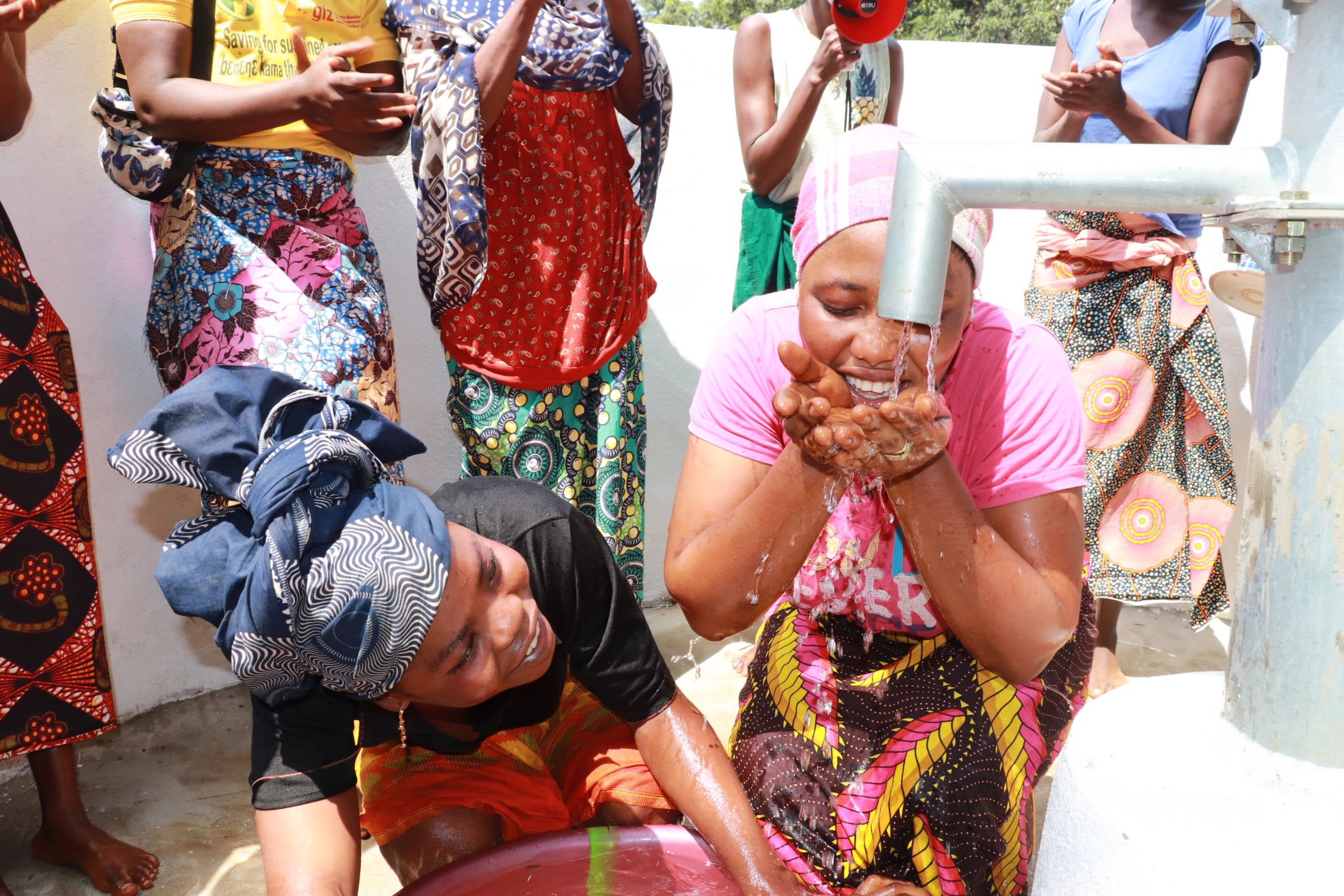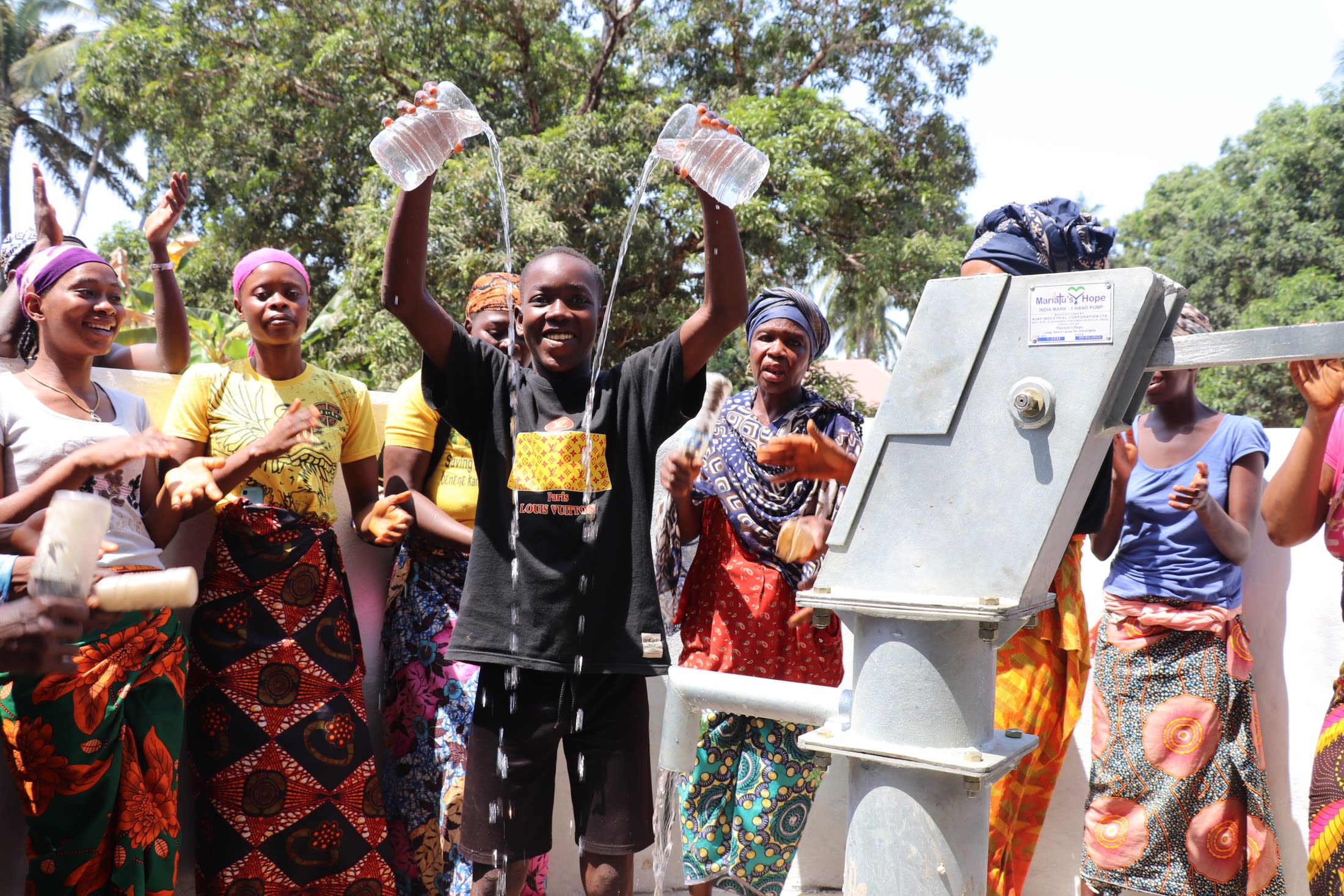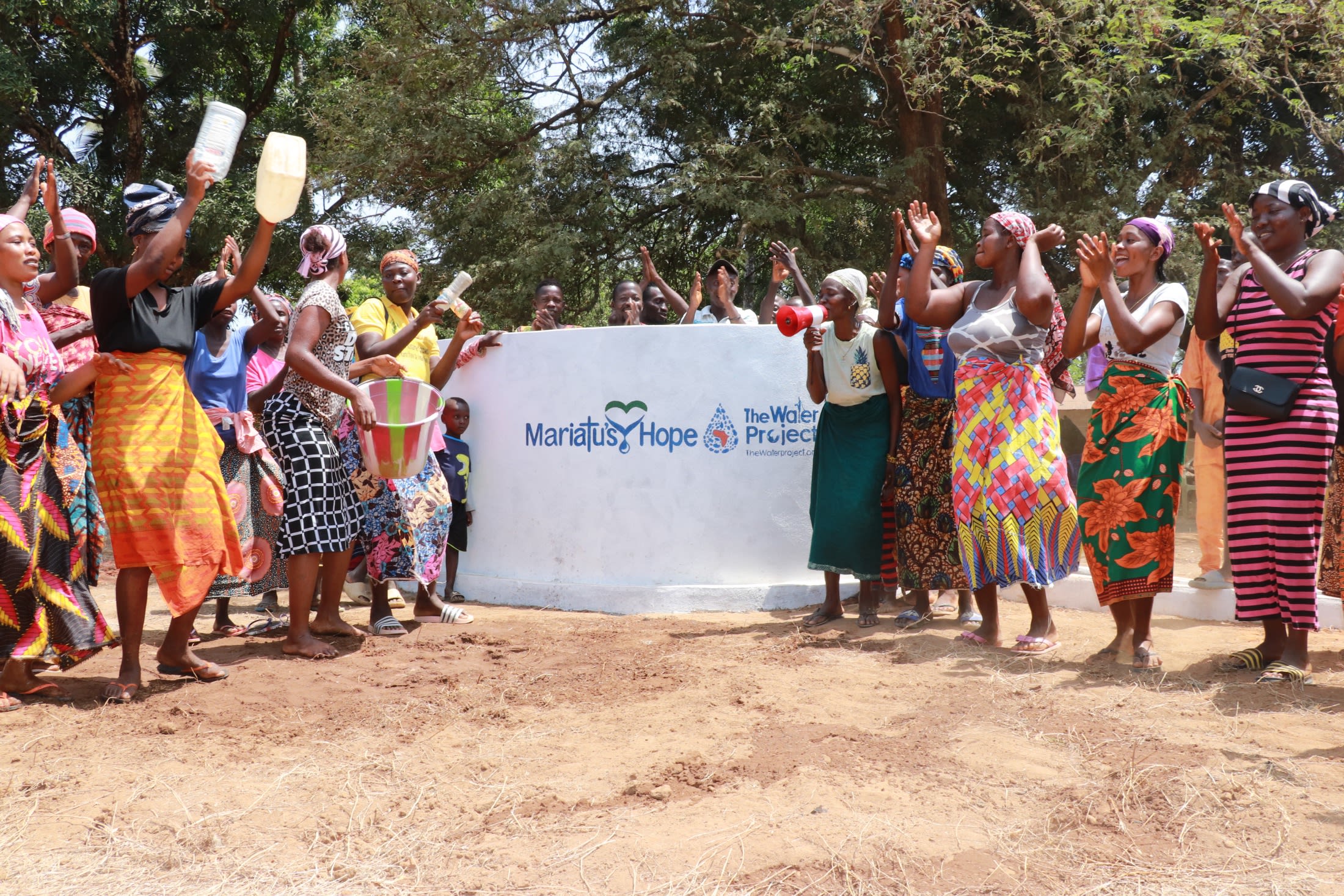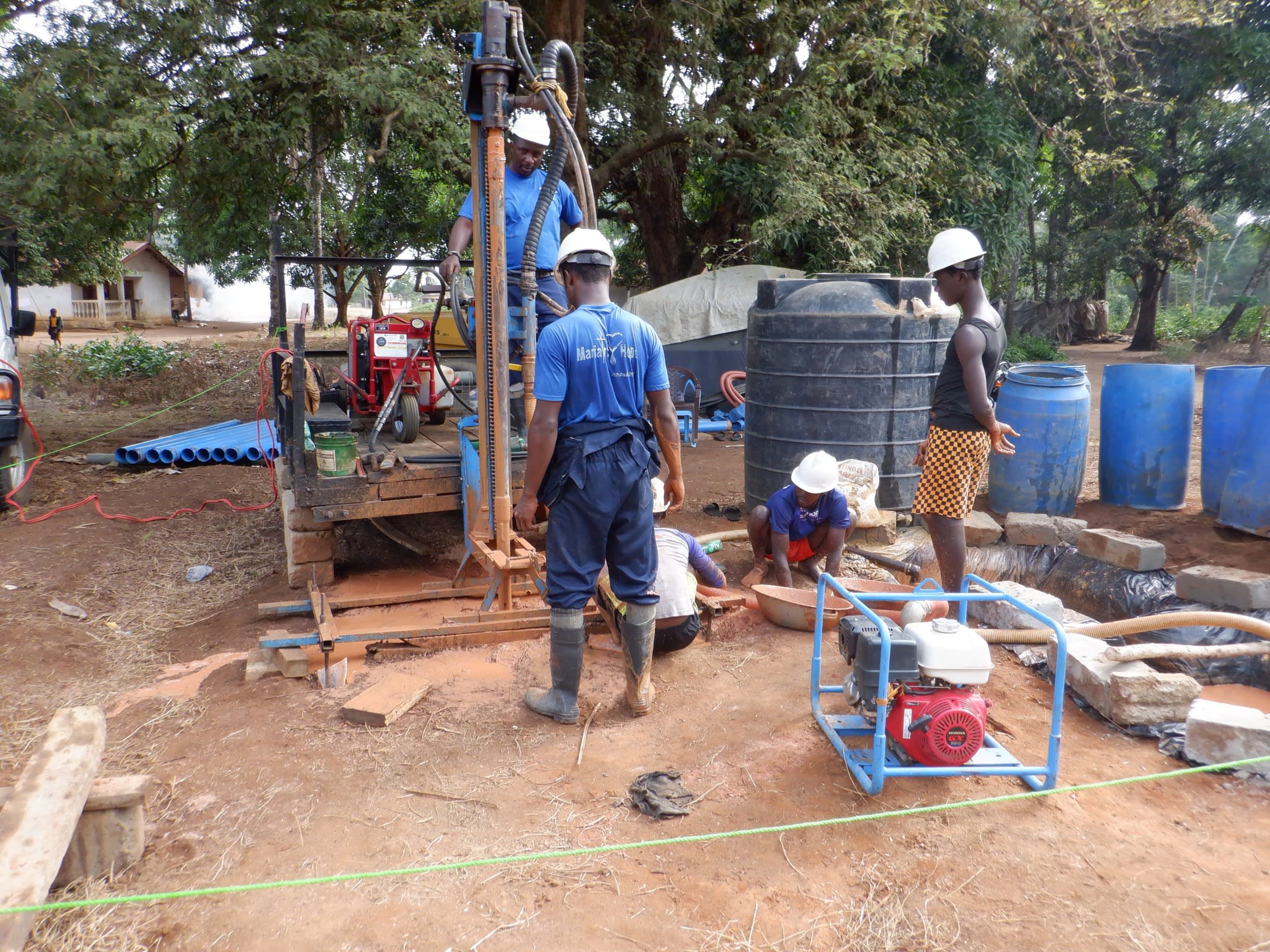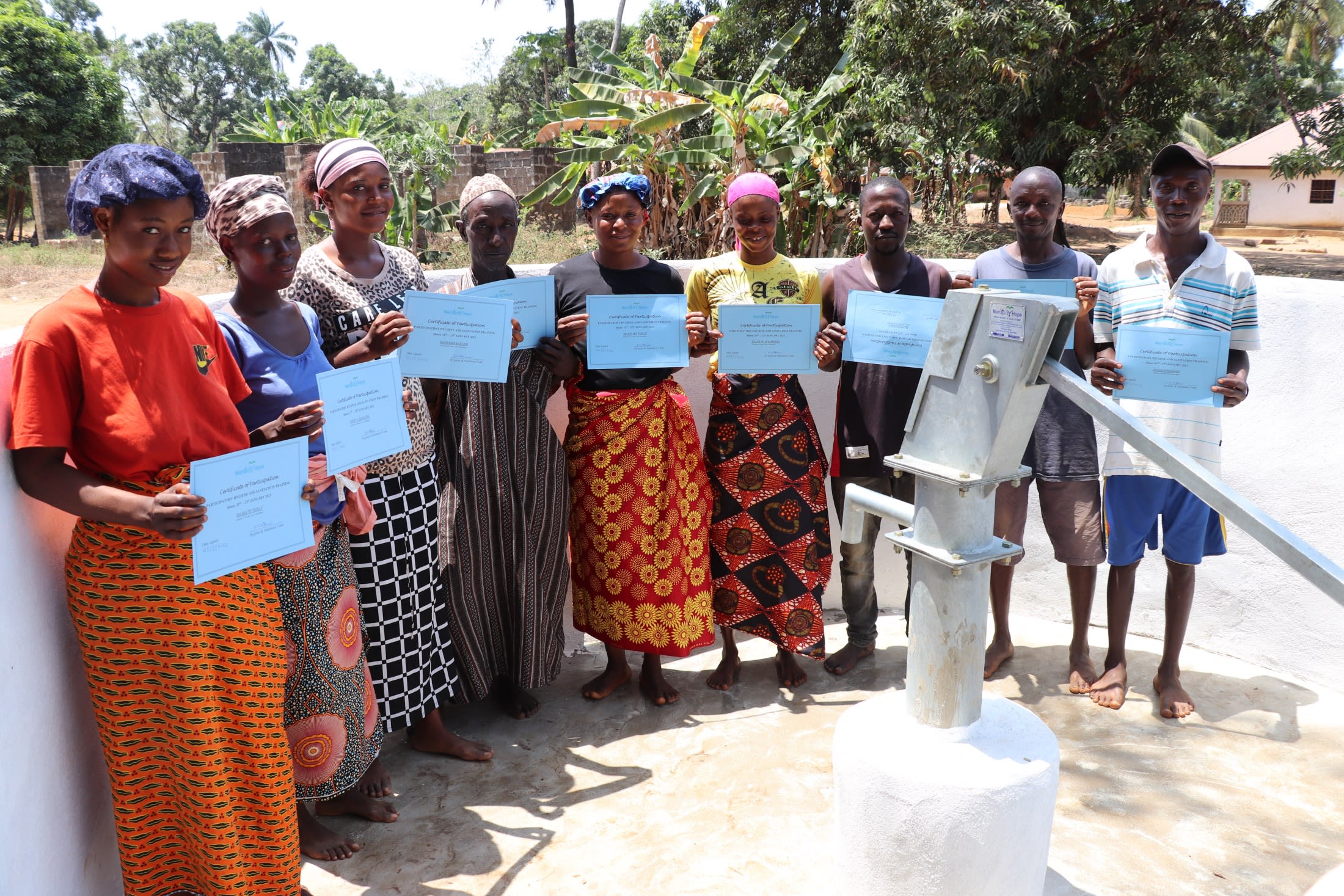The 209 people who live in Makassa have three potential water sources to collect from, but still, they go without sufficient water to meet their daily needs.
There is a nearby well that we rehabilitated at DEC Primary School in 2019, but since it is overcrowded and overused, the school's management has limited the community's access to one hour during lunch.
"I always walk far away from my house to fetch water every day. Water is not available at the well near my house," said 14-year-old Alimamy T (shown below). "I can fetch water from the swamp or the DEC Primary School [well], but it is not always that I am permitted to fetch water from the well."

There is an additional well in the community that was drilled by another organization some time ago, but it has been non-functional for years. Community members stopped drinking the water coming from it because it was not clean, and they could not get help with a resolution. The final straw was when the pump was stolen, leaving it impossible to collect even dirty water.
Community members rely on the only alternative, which is collecting water from an improvised pipe in the swamp. But collecting water there takes a lot of time since it is far away, and people must collect water one person at a time. During the dry season, it takes even longer because the water level runs low. Sadly, all this wasted time delays the other daily activities like cooking, household chores, and working that people need to accomplish.

"The stream is far from my house, and it is difficult to reach there. I easily get tired after school to walk [the] far distance to the stream to fetch water," said Alimamy, shown collecting water from the pipe above.
He continued: "It is not easy for me to read my school notes at home after school because I would be tired after I had fetched water from the stream. I would only need to rest and wake up early in the following morning."
Community members reported that the swamp water has a bad taste and becomes cloudier as more people fetch it. It is not safe to consume and is a threat to people's health, with many of them reporting rashes, stomachaches, and diarrhea after drinking it.
"It is quite difficult for me to get clean and pure drinking water in the community," said Mariama Kamara, a 22-year-old farmer collecting water in the photo below. "The well at the school is not always available to me. I prefer fetching water from the stream."
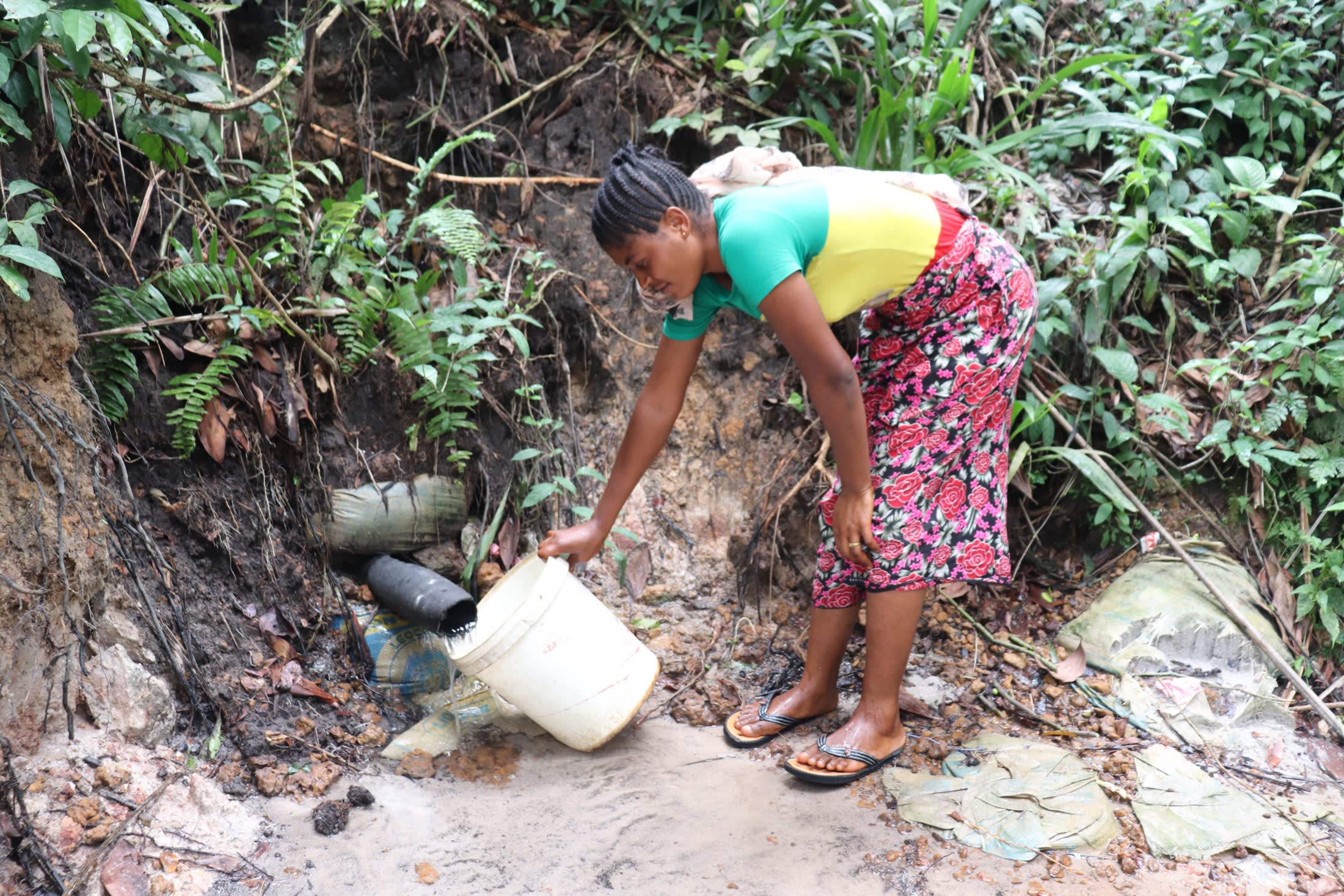
"I walk [a] long distance to fetch water from the stream, and it is more challenging to do that," said Mariama. "Working [the] whole day on the farm and returning to the house to fetch water is not easy for me."

"Also, I must do all the domestic activities at my house. Sometimes, I would not complete my housework like fetching drinking water, launder clothes, fetch enough water for the house, prepare food, etc.," concluded Mariama.
Installing a new well in the community will allow community members to quickly and efficiently collect water so they can reserve their energy for other tasks needing their attention.
What We Can Do:
New Well
Where we will be drilling is centrally located and will relieve many people of the long journey to fetch water and the challenge of accessing clean water.
Our team will drive over the LS200 mud rotary drill rig and set up camp for a couple of nights. Once the well is drilled to a sufficient water column, it will be cased, developed, and then tested. If these tests are positive, our mechanics will install a new India Mark II pump.
By drilling this borehole, Makassa and the surrounding community will be provided with plenty of accessible, clean drinking water.
Training
There will be hygiene and sanitation training sessions offered for three days in a row.
Community members will learn how to make a hands-free handwashing station called the "tippy-tap." We will use these tippy taps for handwashing demonstrations and will also teach about other tools like dish racks and the importance of properly penning in animals. We will highlight the need to keep restrooms clean, among many other topics.
This training will also strengthen a water user committee that will manage and maintain this new well. They will enforce proper behavior and report to us whenever they need our help in solving a serious problem, like a pump breakdown.




 Borehole Well and Hand Pump
Borehole Well and Hand Pump
 Rehabilitation Project
Rehabilitation Project








